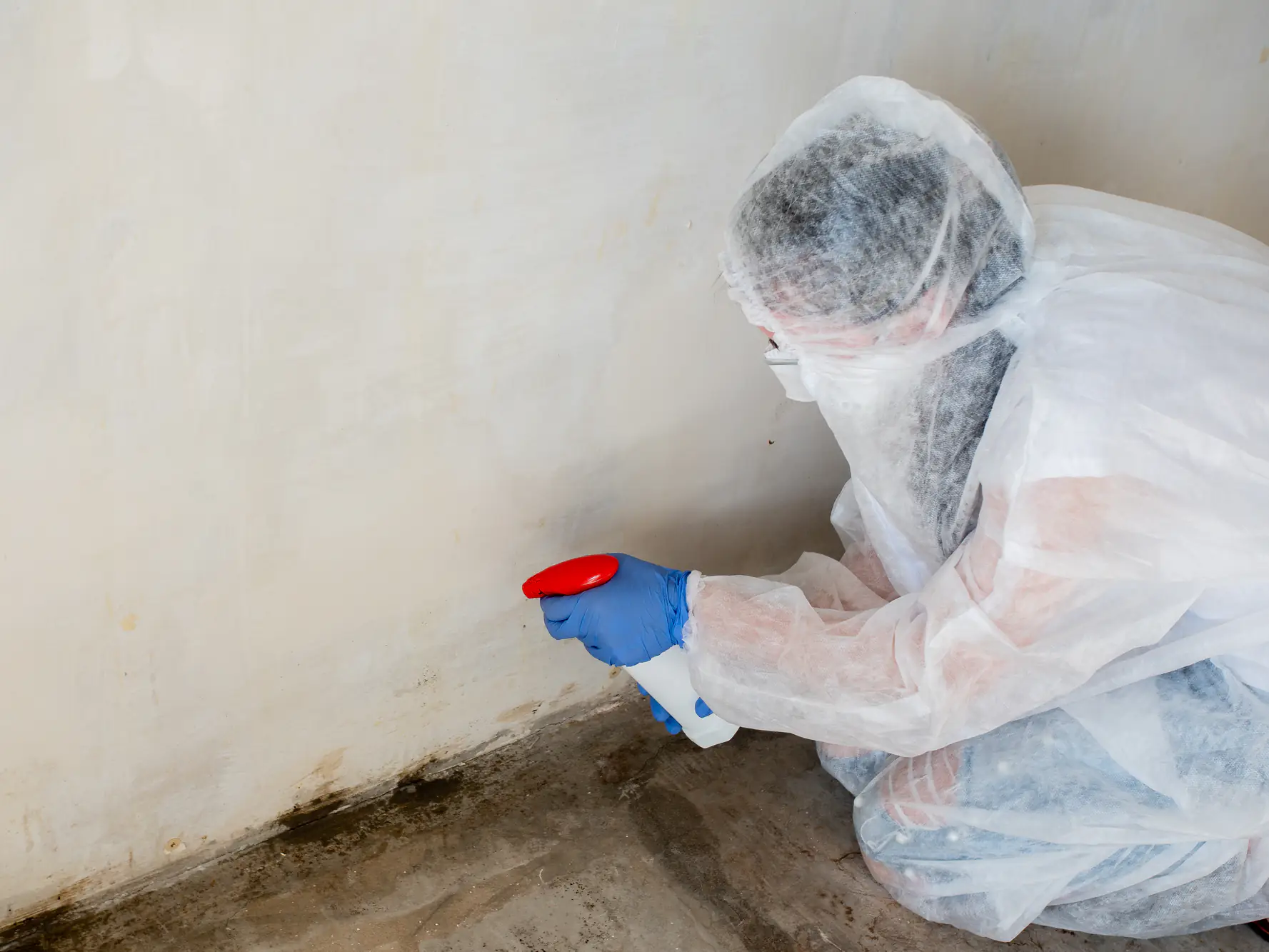
Hear from Our Customers
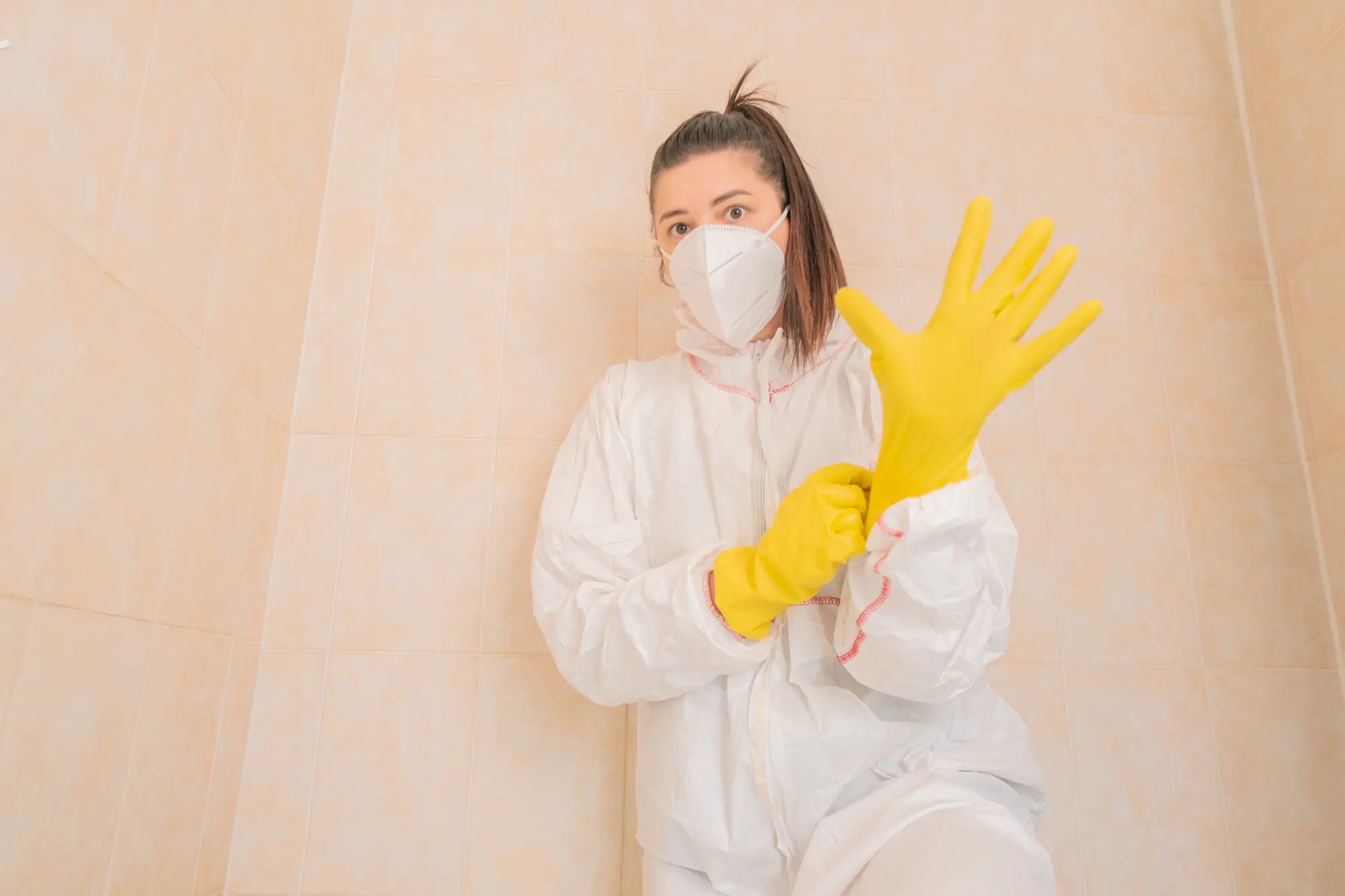
You’ll notice the difference immediately. No more musty odors lingering in your basement or that persistent cough that seems to get worse at home. Your family can breathe freely again without worrying about what’s hiding behind the walls.
The peace of mind is just as important as the clean air. You’ll sleep better knowing the mold problem is completely resolved, not just covered up. Your home becomes the safe haven it should be, and you can focus on living instead of worrying about health risks.
When we’re done, you’ll have documentation showing the work was done right, which protects your property value and gives you confidence if you ever decide to sell.
We’ve been serving Siles and the surrounding Bucks County area with professional mold remediation services that homeowners depend on. We understand the unique challenges Pennsylvania homes face with humidity, aging infrastructure, and the seasonal moisture that creates perfect conditions for mold growth.
Our certified mold remediation specialists use the same EPA-compliant methods that major restoration companies rely on, but we bring the personal attention and fair pricing that only a local company can offer. We’ve seen it all in Pennsylvania homes—from basement moisture issues to attic condensation problems.
What sets us apart is our commitment to doing the job right the first time. We don’t cut corners or use temporary fixes that leave you dealing with the same problem months later.
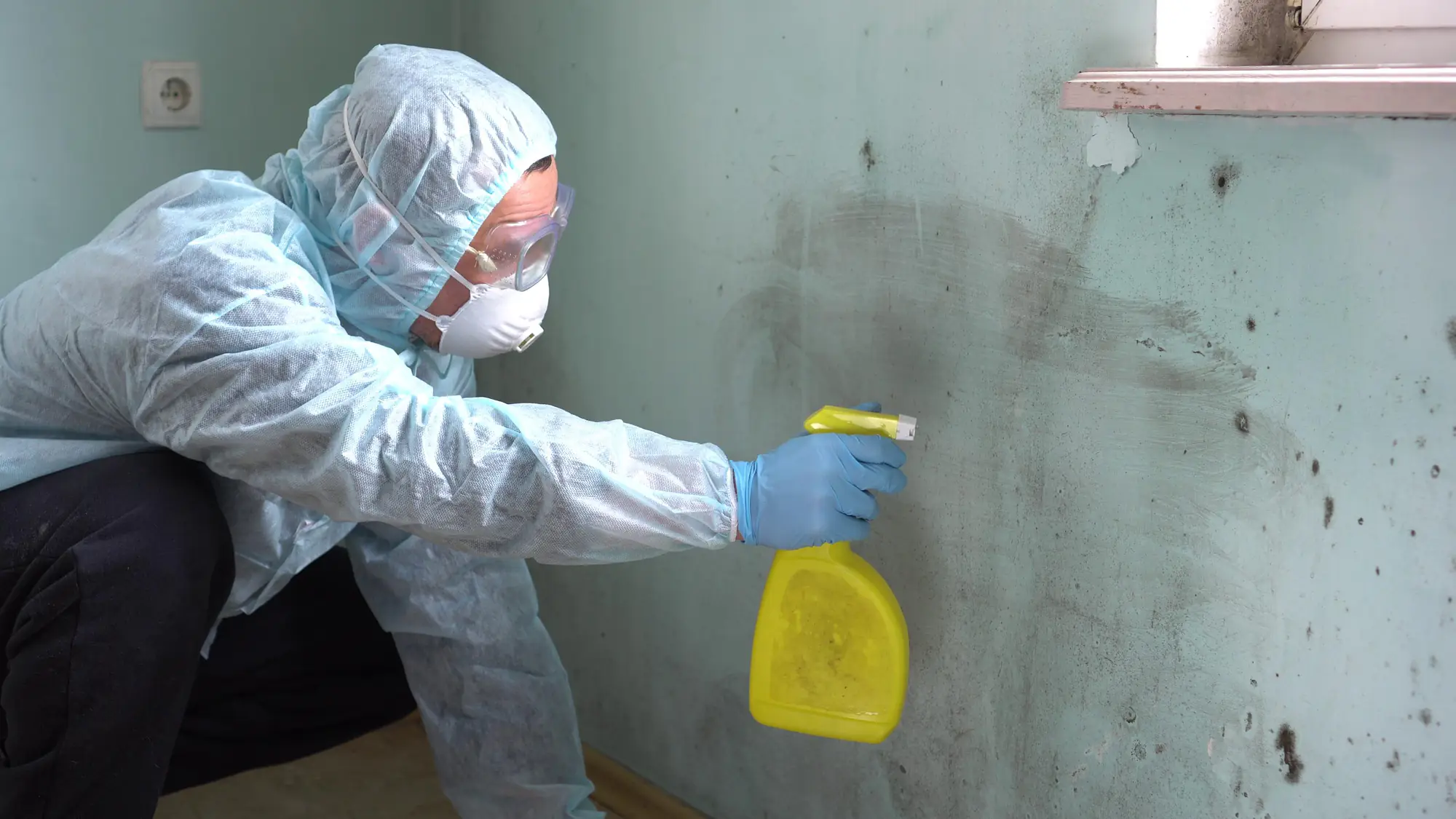
First, we conduct a thorough inspection using infrared cameras and moisture detection tools to find all the mold, including what’s hidden behind walls or in crawl spaces. You’ll know exactly what you’re dealing with before we start any work.
Next comes containment. We seal off the affected areas to prevent mold spores from spreading to clean parts of your home during removal. HEPA air filtration systems run continuously to capture any airborne particles.
Then we safely remove all contaminated materials and thoroughly clean and disinfect every affected surface. We don’t just kill the mold—we remove it completely and treat the area to prevent regrowth.
Finally, we provide recommendations for preventing future mold issues, like addressing moisture sources, improving ventilation, or making minor repairs that keep your home dry and healthy.
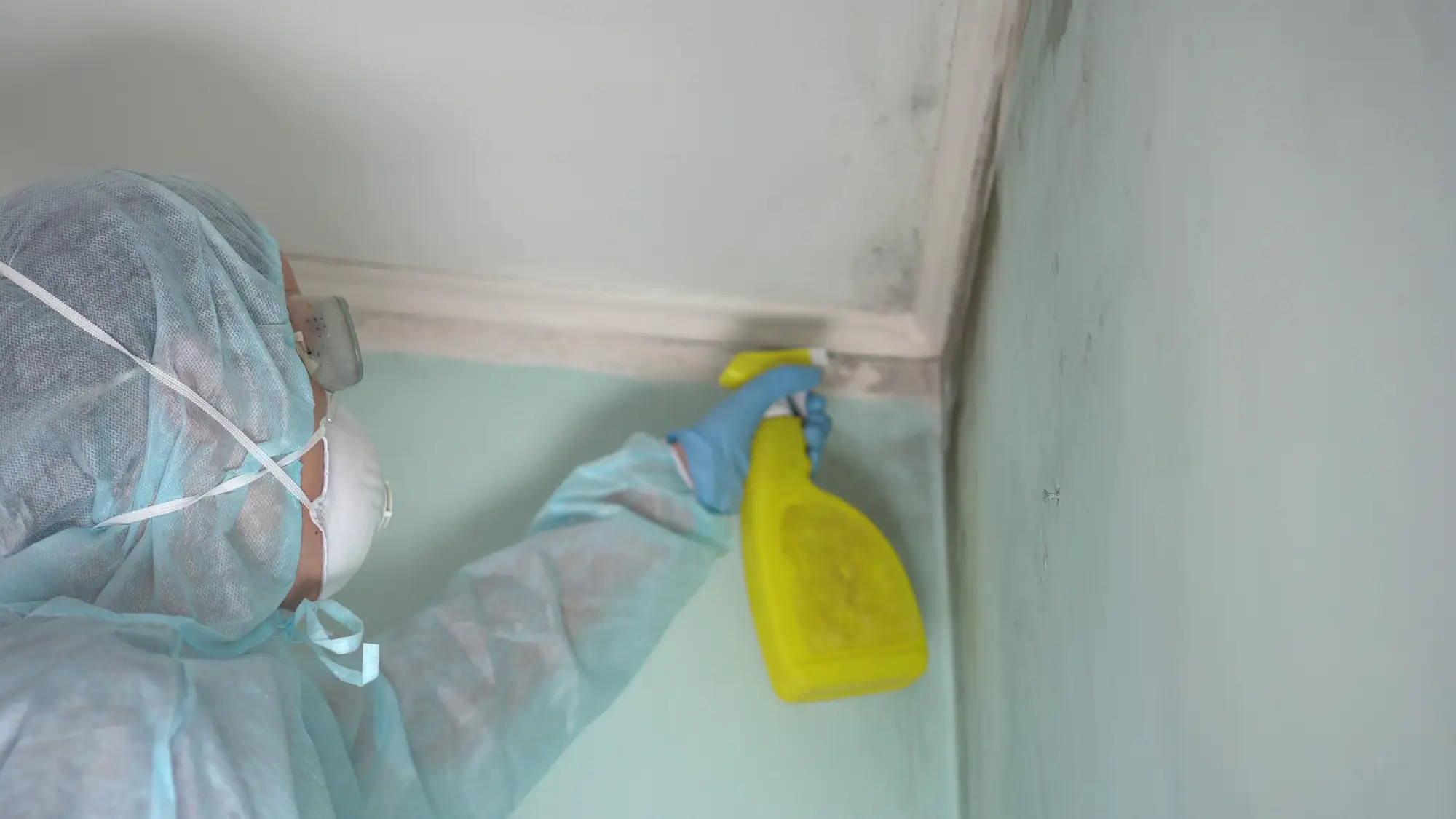
Ready to get started?
Your mold remediation includes complete inspection and testing, professional containment, safe removal of contaminated materials, thorough cleaning and disinfection, and detailed prevention recommendations. We handle basement mold, attic issues, HVAC system contamination, and anywhere else mold has taken hold in your home.
In Pennsylvania, we see mold problems year-round, but they’re especially common after our humid summers and in older homes with ventilation challenges. Our service addresses the specific conditions that cause mold to thrive in this region, from basement moisture to condensation issues in poorly insulated areas.
We use advanced equipment including HEPA vacuums, air scrubbers, moisture meters, and eco-friendly antimicrobial treatments that are safe for your family and pets but effective against all types of mold, including the black mold that causes the most concern for homeowners.
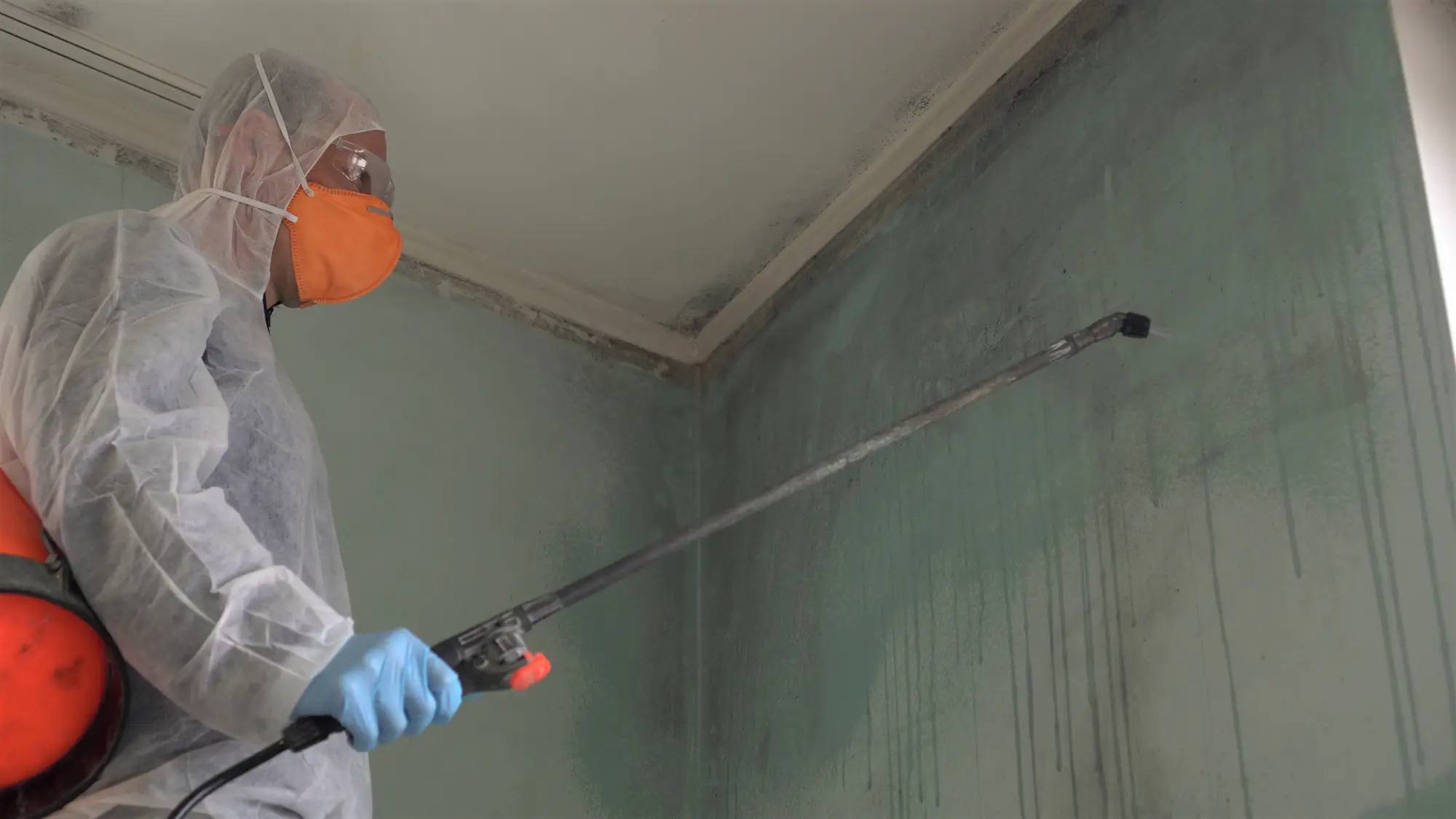
Mold remediation costs in Pennsylvania typically range from $1,100 to $3,200 for most residential projects, though the final price depends on the size of the affected area and extent of contamination. Small bathroom mold issues might cost around $600, while larger problems involving multiple rooms or HVAC systems can reach $10,000 or more.
The square footage is the biggest factor—most specialists charge $10-25 per square foot for professional remediation. Hidden mold behind walls or in crawl spaces increases costs because it requires more extensive removal and reconstruction.
We provide free inspections and detailed estimates so you know exactly what you’re paying for before any work begins. Many homeowners find that addressing mold problems early saves thousands compared to letting the issue spread throughout the home.
For small, contained mold problems, you can usually stay in your home while we work, especially if the affected area can be completely sealed off from living spaces. We use professional containment barriers and negative air pressure to prevent any mold spores from reaching clean areas of your house.
However, if the mold covers a large area, involves your HVAC system, or if anyone in your family has respiratory issues or compromised immunity, we typically recommend staying elsewhere during the active remediation phase. This usually takes 2-5 days depending on the scope of work.
We’ll discuss your specific situation during the inspection and give you honest advice about whether it’s safe to stay. Your family’s health is more important than convenience, and we’ll work with you to minimize disruption while ensuring everyone stays safe during the process.
Most residential mold remediation projects take 3-5 days from start to finish, but the timeline depends on several factors including the size of the affected area, type of materials involved, and whether reconstruction is needed after removal.
Small jobs like bathroom mold or a single room might be completed in 1-2 days. Larger projects involving basements, multiple rooms, or HVAC system cleaning can take a week or more. If we need to remove and replace drywall, flooring, or insulation, that adds time for the reconstruction phase.
We’ll give you a realistic timeline during the initial inspection so you can plan accordingly. Weather can also affect drying times, especially during Pennsylvania’s humid summer months when it takes longer for treated areas to completely dry before we can complete the final steps.
Insurance coverage for mold remediation depends on what caused the mold problem in the first place. If mold resulted from a sudden, accidental water event like a burst pipe, roof leak from storm damage, or fire suppression efforts, your policy will likely cover both the water damage cleanup and mold remediation.
However, mold caused by ongoing maintenance issues like slow leaks, poor ventilation, or high humidity typically isn’t covered. Insurance companies consider these preventable problems that homeowners should address before they lead to mold growth.
We can help document the cause and extent of damage to support your insurance claim when coverage applies. We work directly with insurance adjusters and know how to present the information they need to process claims quickly. Even when insurance doesn’t cover the work, addressing mold problems promptly prevents much more expensive damage down the road.
Mold removal technically means eliminating every single mold spore, which is impossible since mold spores naturally exist everywhere in the environment. What we actually do is mold remediation—reducing mold levels to normal, safe amounts that don’t pose health risks or cause property damage.
Professional remediation involves identifying and eliminating the moisture source, containing the affected area, removing contaminated materials that can’t be cleaned, thoroughly cleaning salvageable surfaces, and treating the area to prevent regrowth. It’s a comprehensive process that addresses both visible mold and the conditions that allowed it to grow.
DIY “mold removal” products you see in stores might kill surface mold temporarily, but they don’t address hidden mold or fix the underlying moisture problems. Without proper remediation, the mold almost always comes back within weeks or months, often worse than before.
The key to preventing mold recurrence is controlling moisture, which means keeping indoor humidity below 60% and addressing any water intrusion sources. In Pennsylvania’s climate, this often means using dehumidifiers during humid summer months and ensuring proper ventilation in bathrooms, kitchens, and basements.
Fix any leaks immediately—even small drips from pipes, windows, or roofs can create enough moisture for mold to return. Improve air circulation in problem areas with fans or by opening windows when weather permits. Clean gutters regularly so water doesn’t overflow and seep into your foundation.
We provide specific recommendations based on what we find during your remediation, like sealing basement walls, improving attic ventilation, or upgrading bathroom exhaust fans. Following these prevention steps is just as important as the initial cleanup—it’s what keeps your investment in professional remediation from being wasted.
Other Services we provide in Siles